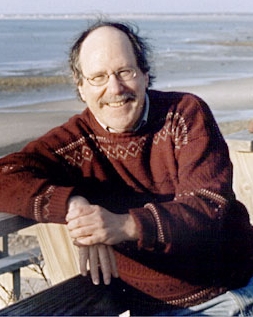
Marshall McLuhan caused wide irritation with his statement that the traditional, book-oriented intellectuals had become irrelevant for the formulation of cultural rules in the electronic age. (Photo credit: Wikipedia)
The latest scoop interview in the Zen of Teaching series is with
Paul Levinson, Professor of Communications and Media Studies at Fordham University in New York City. An internationally acclaimed scholar of McLuhan and disciple of the late Neil Postman, Paul accepted with joy this interview, without knowing that my tenet about using amateur technology would reveal treacherous. He was very clear and made every effort to explain his positions as carefully as possible during the interview. Problem was, my new camera’s battery died at mid interview and I had to quickly recur to a second backup camera. Of course, Murphy’s law triggered at that moment, and the second camera died too during the interview. Fortunately I had the time to recharge enough of the first to finish the interview. In any case, I had not understood properly the concept of perspective when I decided to videotape the computer screen with a camera too close to it. So, Levinson’s face is a bit off focus, and his voice too. I am sorry, it is all my own fault. But still, magically, the video of this interview, if a bit surreal, still gives us the ideas that Paul put forward and still encourages us to think over them. I really thank Paul for his spirit and of course for what he symbolizes. Let me just add that Paul Levinson, apart from releasing his latest version of the greatly successful book New New Media, has published many scholarly articles and books, but he is also a rock’n’roll musician who delivers records and an accomplished Science Fiction writer!! Last, Paul curates a blog on the best TV series in the US, which is beautifully named Infinite Regress, and which I read regularly, as soon as a new episode of Dexter comes out! Of course, he also finds the time to spend at a surreal interview like this.
Like with previous interviews, the awesome Gabriela Rivera Torrado has carefully reviewed the video and extracted its most essential ideas, which she then summarized here.
***
Paul Levinson reflects upon the work of Marshall McLuhan, Canadian philosopher of communications theory, written in the 1950’s and 1960s. McLuhan’s concept of a global village sprouting due to electronic media, developed in the 1960’s, is now a reality and education has become another form of communication within this village. Today’s classroom has become something which is much more than a room that some people happen to be in, the physical place has become much less important to education, as has the physical text book you hold in your hand. Although the internet has not replaced the use of books altogether, resources such as Wikipedia have surged in importance. Levinson points out the instant nature of these resources: “if someone wants to find information all they have to do is log onto Wikipedia (…)”. Dr. Levinson also mentions that he’s even used Facebook to find information, asking questions through his status and receiving an answer almost instantly. According to him, this is education, not from a classroom, not from professors or students, but it’s “ the world educating itself constantly”.
When inquired about the difference between medium and content, and which is more important, Levinson mentions that it is a mistake to even make a distinction between the two, as one cannot exist without the other. He mentions McLuhan’s example of the television. If you didn’t have content, what would television be? Just a screen. If there wasn’t content, the medium would just be “interesting little devices to look at (…) objects d’art”, going so far as to mention “ we might even enjoy our own reflections in the mirror of the computer screen”.
According to Levinson, content is what makes a medium a medium. Nowadays, the content which was once only a product of an elite of published authors, is produced by a wide variety of people. The new media has shifted the equation among the once consumers who are now also producers of that content. McLuhan first noticed this in the 1970’s with the advent of Xerox technology, the machine that “turned every author into a publisher”, creating one of the first times in the mass media which empowered the consumer to become a producer in a very limited way.
Today’s new media empowers the masses through a medium that makes it easy to contribute. Levinson points out that whether its “YouTube, where its just as easy to produce your own video as to watch a video, its that easy… you’re watching this interview on Skype and you could easily put it on YouTube” (which we did!) or a blog post “ it’s just about as easy to write a blog post as it is to read a blog post”. This is especially relevant in the classroom today.
According to Levinson, a professor used to be, in general, someone who taught the books of others to his or her students. For example teaching Charles Darwin in an evolutionary biology course or Charles Dickens in an English course. What’s happening increasingly, thanks to the new media, is that teachers are writing their own books, creating their own podcasts and videos and students are reading and watching this new material.
The way we educate and learn is changing constantly and thanks to the innovations available to us we are able to do so far more effectively than before. As Levinson states in a manner that sounds beautifully poetic to me, “we are rebuilding the cosmos through technology.”




